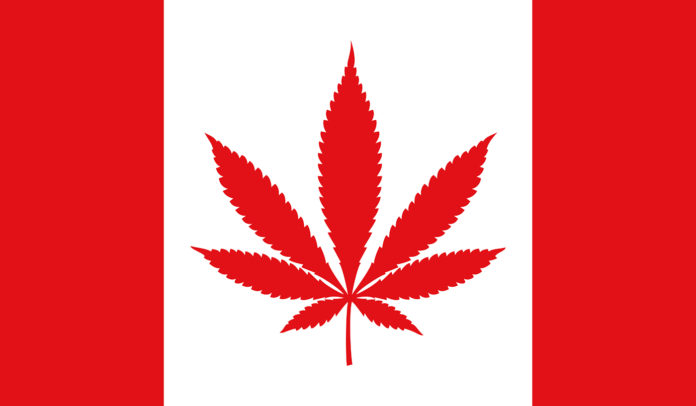TORONTO, CANADA–You have until Wednesday to apply to Canadian cannabis producer AHLOT (which stands for A Higher Level of Thought), for one of five positions available on their cannabis Connoisseur Committee.
The company’s website said simply this about the jobs; “We’ll pay you $50/hour (to a maximum of 16 hours per month) to evaluate the best that Canada’s growers have to offer. Expenses of $200 per month. Five Connoisseur Committee jobs available.”
Wednesday, October 17, is also the day that cannabis becomes legal in Canada, the second country to legalize marijuana nationally for adult use behind Uruguay. Though Prime Minister Justin Trudeau had originally hoped for legalization to be implemented as early as July, in the year leading up to adult-use legalization several Canadian cannabis companies have achieved billion dollar valuations.
Vigorous trading activity, mergers and acquisitions, and positive predictions for revenue in the global cannabis market have bolstered Canadian exchanges and, as of Wednesday, there seems nowhere else for the market to go but up.
Tilray Inc., a leading Canadian cannabis producer took a wild roller-coaster ride in the markets during September, after it had been announced that the company may be allowed by U.S. authorities to export cannabis to California for an academic research study. The company’s stock price skyrocketed briefly on the news to bring the its valuation to $11 billion, but then simmered down with speculation that cannabis for the study could be sourced from U.S. growers, according to Forbes columnist Julie Weed.
Though legalities surrounding trade with the U.S. continue to be complicated by America’s federal prohibition on cannabis, Tilray has already exported products to New Zealand, Australia, Cypress, South Africa, South America, and several countries in Europe.
Another positive development from legalization for cannabis-friendly Canadians, according to media reports, is the creation of potentially thousands of cannabis economy jobs.
No longer nearly as stigmatized as prior to legalization, Canadian cannabis companies are headhunting executives and professionals from mainstream industries and established businesses. Many of those tapped seem interested in opportunities for participation in a brand new industry–one with long-term possibilities for changing cultural and societal attitudes, as well as generating huge revenues.
Even the threat of a lifetime ban on travel to the U.S. for those employed in Canada’s cannabis industry does not seem to be having an affect of the number of applicants willing to work. The Vancouver Sun said local governmental agencies that will operate the province’s cannabis distribution and retail facilities are having no lack of interest from eager job applicants.
“We understand that, really, this is a government to government issue. Our role is going to be to work with the employer to make sure that anybody who does take a job in the new branch understands the potential outcomes,” Stephanie Smith, president of the B.C. Government Employees Union, told the Sun.
“We just feel really, really strongly that people who work in a legal industry and, in fact, are working for a provincial government, should not be punished for doing so,” Smith added, referring to the possible ban on travel to the U.S.
Canadian cannabis producers are hiring for existing and new positions up and down their vertical businesses, as well. Alison McMahon, founder and CEO of human resources firm Cannabis at Work, told BNN Bloomberg that 120,000 jobs will be created in Canada during the first year of legalization. She indicated that as the industry gears up for adult-use sales, open job positions have shifted from cultivation and operations roles to more positions in distribution, wholesale, and retail.
In fact, Aphira, Inc., another leading Canadian cannabis producer, warned that after legalization happens on Wednesday, there was likely to be shortages of flower stock and disruptions in the supply chain. Aphira’s chief executive added that as producers continue to gear up to supply demand, shortages might be an issue for a month or two after adult-use is implemented on Wednesday.
A recent study conducted by Canadian think tank C.D. Howe Institute estimated average annual demand to be just over 655 tons, but noted that disruption in the supply chain, stock shortages, and high taxation could drive consumers to access black market product. The institute predicted that if the black market fills the gap for consumers, which seems likely, it could potentially result in a $300-$600 loss of tax revenue for provincial governments until legal cannabis becomes more available and affordable for consumers.
The C.D. Howe report said, “If the government taxes marijuana heavily, it will ensure the continuation of the black market and undermine its efforts to control the substance… A newly accessible legal supply at a low price—made possible i n part by low taxes—will result in a decrease of the black market and has the public health benefit on encouraging more consumers to use regulated product.”
In Winnipeg, Manitoba, though, one job position is being phased out as cannabis becomes legal–members of the K9 drug detection unit that have been trained to alert on cannabis products may inadvertently cause issues with illegal search and seizure for inspection authorities. New dogs added to the unit will not be trained to detect cannabis.











